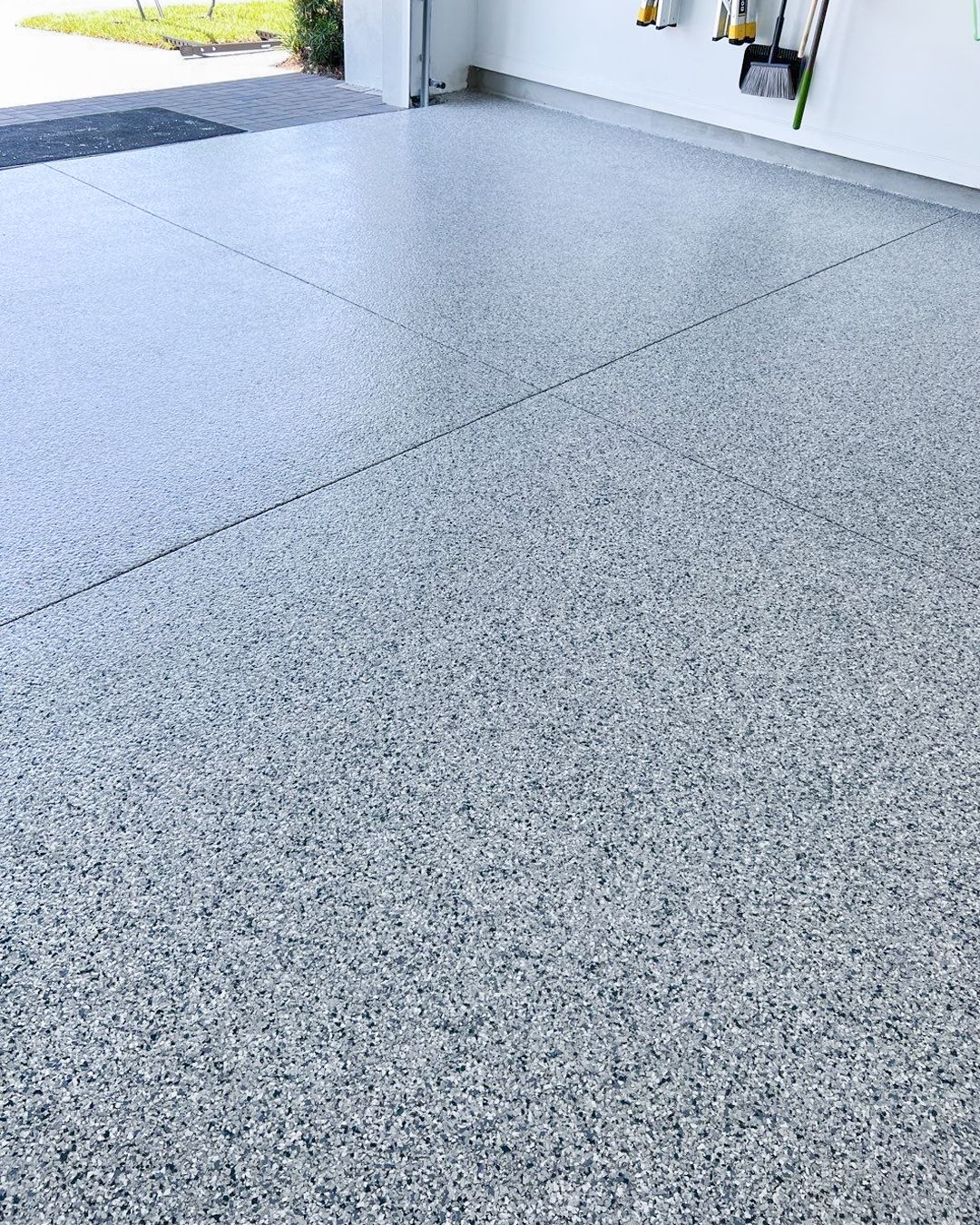Epoxy floor coatings can typically be poured at varying thicknesses depending on the specific product and application requirements. However, a common range for epoxy floor coatings is between 2 to 3 millimeters (0.08 to 0.12 inches) thick per coat.
It’s important to follow the manufacturer’s instructions regarding the recommended thickness for the specific epoxy product being used, as well as any substrate preparation requirements to ensure proper adhesion and performance.
Additionally, multiple coats may be applied to achieve the desired thickness or to create additional durability and aesthetic effects.

1. Understanding Epoxy Floor Coating
Epoxy floor coating is a protective layer applied to concrete floors to enhance their appearance and durability. It’s composed of epoxy resin and a hardening agent, creating a chemical bond that forms a tough surface.
2. Importance of Thickness in Epoxy Coating
The thickness of epoxy coating directly impacts its performance and longevity. A thicker coating provides better protection against wear, chemicals, and abrasion, ensuring the floor’s durability over time.
3. Ideal Thickness for Epoxy Floor Coating
The ideal thickness for epoxy floor coating varies depending on the specific application and requirements. In most cases, a thickness ranging from 2 to 3 millimeters is recommended for optimal performance and durability.
4. Factors Affecting Epoxy Thickness
Several factors influence the thickness of epoxy coating, including the condition of the substrate, the intended use of the floor, and environmental factors such as temperature and humidity. Proper surface preparation is also crucial for achieving the desired thickness.
5. Application Process of Epoxy Floor Coating
The application of epoxy floor coating involves several steps, including surface preparation, mixing the epoxy resin and hardener, and applying the mixture evenly onto the floor surface. Proper technique and equipment ensure a uniform thickness throughout the coating.
6. Comparing 24 Hour Floor vs. Polyurea Floor
When considering epoxy floor coating options, two popular choices are 24-hour floor systems and polyurea floors. While both offer durability and aesthetic appeal, they differ in terms of curing time and chemical resistance.
7. Benefits of Thicker Epoxy Coating
Opting for a thicker epoxy coating offers several benefits, including increased durability, enhanced protection against chemicals and abrasion, and improved longevity. Thicker coatings also provide a smoother surface finish, making maintenance easier.
8. Drawbacks of Excessive Thickness
While thicker epoxy coatings offer numerous advantages, there are also drawbacks to consider. Excessive thickness can lead to uneven curing, longer curing times, and potential cracking or delamination if not applied correctly.
9. Maintaining Thick Epoxy Floors
Proper maintenance is essential for preserving the integrity of thick epoxy floors. Regular cleaning and periodic resealing help prevent damage and extend the lifespan of the coating. Additionally, addressing any issues promptly can prevent minor problems from escalating.
10. Conclusion
In conclusion, the thickness of epoxy floor coating plays a significant role in determining its performance and longevity. While an ideal thickness of 2 to 3 millimeters is recommended for most applications, various factors must be considered to achieve optimal results. Whether opting for a 24-hour floor system or polyurea floor, maintaining the right thickness ensures a durable and aesthetically pleasing flooring solution.
FAQs
1. How long does it take for epoxy floor coating to cure?
Epoxy floor coating typically takes around 24 to 72 hours to cure fully, depending on factors such as temperature, humidity, and thickness of the coating.
2. Can you apply epoxy floor coating over existing flooring?
Yes, epoxy floor coating can be applied over existing concrete, tile, or other flooring materials after proper surface preparation to ensure adhesion.
3. Is epoxy floor coating suitable for outdoor use?
While epoxy floor coating is primarily designed for indoor use, special formulations are available for outdoor applications, providing UV resistance and durability.
4. What is the difference between epoxy and polyurea floor coatings?
Epoxy floor coatings are made from epoxy resin and a hardening agent, offering excellent adhesion and chemical resistance. Polyurea floor coatings, on the other hand, are a more flexible option with rapid curing times and enhanced durability.
5. Can epoxy floor coating be customized for specific colors or designs?
Yes, epoxy floor coating can be customized with a wide range of colors, patterns, and textures to suit individual preferences and design requirements.



